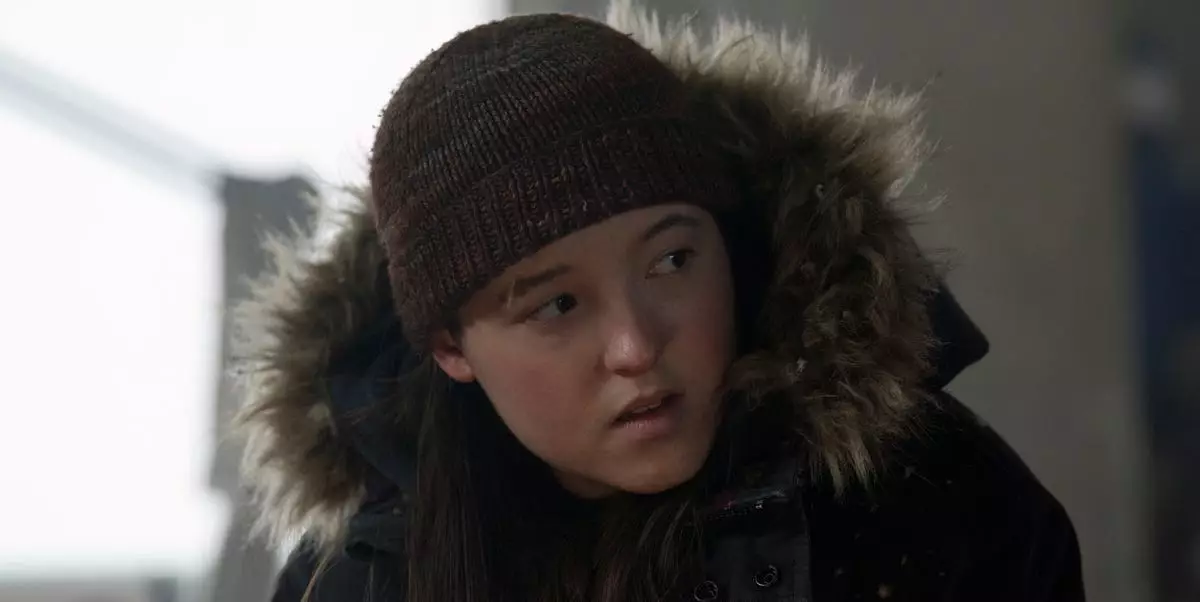The latest episode of HBO’s adaptation of “The Last of Us,” titled “Through the Valley,” is a monumental pivot in the narrative, balancing raw emotion with brilliant storytelling. This episode transcends mere entertainment; it delves deep into the themes of loss, love, and survival in a post-apocalyptic world. The devastating moment where Ellie, played by Bella Ramsey, grapples with the haunting reality of losing her father figure, Joel (Pedro Pascal), evokes a visceral reaction that lingers long after the screen fades to black. It is an episode that highlights how a story can be amplified through the interplay of narrative and music.
At the climax of this heart-wrenching tale, the episode climaxes with a somber performance by Ashley Johnson, who lends her voice to Ellie in both the games and the series. Johnson sings “Through the Valley,” a haunting acoustic ballad that acts as a mournful elegy for the relationships that this harrowing post-apocalyptic existence has severed. The choice of this song carries profound significance, not only in the context of the story but also as a recursive nod to the larger themes within “The Last of Us” franchise itself.
The Duality of Identity
What makes Johnson’s cameo particularly compelling is the dual role she occupies within this universe. By portraying both Ellie and her mother, we witness a complex layering of affection that complicates Ellie’s character and adds depth to her trajectory. This intricate web of relationships forms the emotional backbone of the series, illustrating how loss shapes not just individual lives but entire generations. The echoes of a mother’s love resonate even through her absence, capturing the viewer’s heart and reminding us that love often exists in a liminal space between memory and recognition.
The lyrics of “Through the Valley” serve as more than just an auditory experience; they encapsulate the overarching themes of hardship and resilience interwoven throughout Ellie and Joel’s journey. Through music, the narrative transcends its spoken lines, affording the audience an emotional catharsis that the mere visual presentation cannot achieve. The visceral connection that Johnson’s voice provides draws us closer into Ellie’s psyche, enhancing our understanding of her vulnerability and strength.
Artistry Behind the Scenes
Series co-creators Craig Mazin and Neil Druckmann have masterfully crafted an atmosphere where music not only underlines moments of intensity but also elevates them. In an insightful revelation during HBO’s podcast related to the series, they elucidate how the song had been envisioned long before reaching this climactic moment, connecting its origins to an earlier narrative reveal in “The Last of Us Part II.” The preparation and thought that went into the selection of this particular song reveal an artistry that transcends the episodic format, presenting a coherent aesthetic experience linked throughout multiple layers of storytelling.
The incorporation of “Through the Valley” not only signals a thematic resolution in this episode but also leaves a haunting whisper that lingers as the episode concludes. It emphasizes the idea that every action comes with consequences, and every relationship holds the potential for both growth and devastation. The breathe-catching moments Ellie experiences as she navigates her loss remind us of the fragility of human connections—even in a world ravaged by carnage and despair.
The Weight of Memory
This moment in the series encapsulates a crucial turning point in Ellie’s arc. Faced with profound grief, her journey is no longer purely about survival; it has transformed into a struggle for connection and meaning amidst chaos. Her slow, painful crawl towards Joel’s lifeless body is not just a physical action but a monumental emotional statement. It encapsulates the harsh reality of the world they inhabit—where the strongest bonds can also be the most fragile, torn away by circumstances beyond anyone’s control.
Music acts as a formidable ally in this exploration of grief, enabling both characters and viewers alike to confront the emotions that linger within the narrative. As the soothing strains of Johnson’s voice envelop the audience, we are reminded that in the face of unstoppable loss, the ties we forge, however tenuous, ultimately shape our existence. The interplay of these elements in “Through the Valley” highlights how beautifully cruel storytelling can be in capturing the nuances of life, love, and remembrance in a world where hope often seems like a distant memory.

